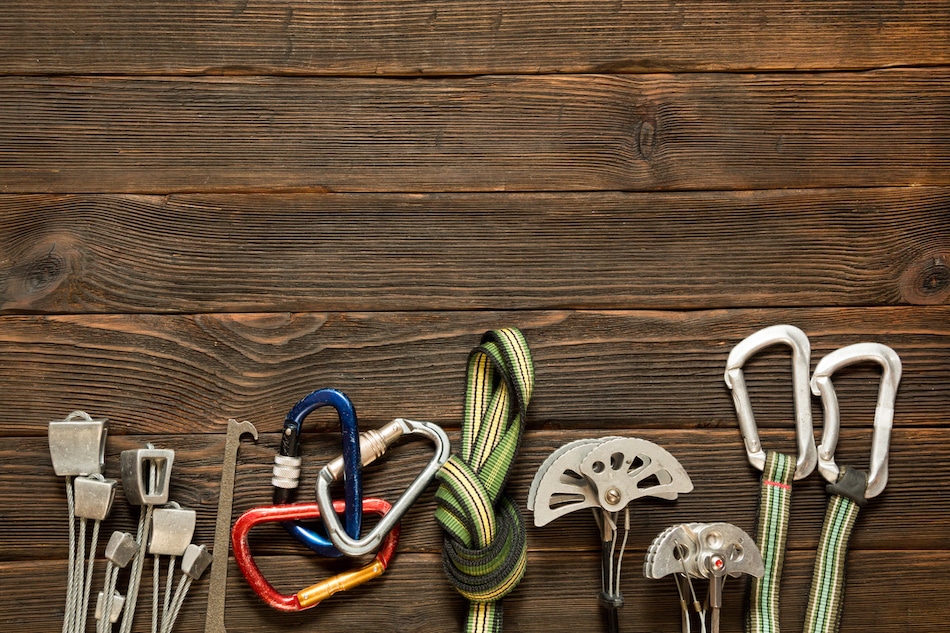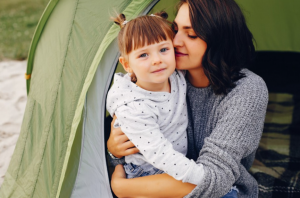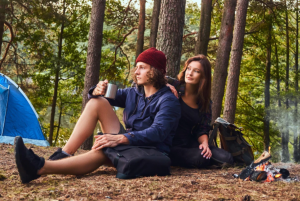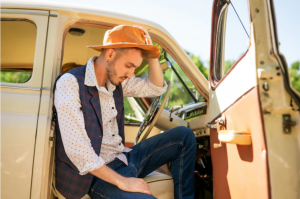What We'll Cover
How Can You Stay Safer While Mountaineering?
Mountaineering is undoubtedly one of the most exciting activities that a person can take up, but it’s also one of the more dangerous things a hard-core outdoors person can do.
Just one fall can result in a severe injury and potentially even call for emergency responders to visit the scene.
Luckily, bringing the right tools and the best small camping sets to your campsite or recreational vehicle can make it easier to handle the unexpected events that may come up when you want a more challenging experience.
Protecting the Body While Mountaineering
The weather can become brutal as mountaineers push themselves through the elevation. Sunscreen, lip balm, and goggles or sunglasses can all protect people’s skin from the worst effects of the sun, while vests, jackets, and gloves can all give a mountaineer the insulation they need to keep warm against chilly winds.
Wearing layers is crucial when hiking or climbing because the altitude changes can cause the weather to change in the blink of an eye. To stave off the worst of overheating or cramping fingers, these elements protect the body from some of Nature’s more extreme conditions.
Mountaineering & Staying on Course
A map and a compass are absolutely crucial for being able to stay the course, but GPS may be an even better tool to use. New smartphone technology allows a hiker to use their phone for up to 10 days without recharging and will support apps such as GAIA GPS that show full maps for major outdoor destinations.
Many people believe their tracking software will stop working due to a loss of signal, but the satellites can keep working in case the user takes a wrong turn somewhere along the way. Headlamps and extra batteries also make it easier to identify potential challenges when routing, especially if it’s dark from incoming rain.
Mountaineering Emergency Supplies
Mountaineers don’t have an unlimited amount of space for a large first-aid kit, so their supplies will need to be customized based on the length and the difficulty of the trek. The best thing to do is to limit the number of specialty items by bringing an emergency kit. Instead, one should focus on multipurpose items, such as compresses, tape, antiseptics, and basic medications. Even OTC remedies such as ibuprofen or acetaminophen can help bring down fevers. These also limit inflammation in the event of an injury. A Swiss Army Knife can also go a long way toward completing makeshift repairs or creating off-the-cuff solutions.
Additional Considerations
Mountaineers who prepare for the worst should have a full day’s worth of food. They should also have some type of emergency shelter. A tent or tarp can be carried in a backpack. This is in case that either the individual hiker or the party is delayed. Ropes and carabiners may be appropriate even if mountaineers aren’t planning to do rock climbing. Matches should be carried in case a fire needs to be started. Fires are used for warmth or can be used as an emergency signal.
Everyone likes to think these emergency items will not be necessary. Everyone should have a map and has dressed appropriately for the weather. However, emergency supplies give people the confidence to correctly handle emergencies.
Mountaineering is a fun way to explore the world. However, even the best-laid plans can go awry when dealing with the unpredictability of life, the dangers of mountains, and the risks of rock slides. To keep everyone safe on the expedition, it takes more than a canteen or two of water to prepare. Climbers can use these tools to protect themselves, and they challenge their stamina to take on the next great hurdle. Make sure you pack the right gear in your bags before you go mountaineering.
Once you’re back from a long mountaineering, you can return to your camp and relax in a camping chair and sit next to a campfire or camping heater powered by a camping generator.
The responses below are not provided, commissioned, reviewed, approved, or otherwise endorsed by any financial entity or advertiser. It is not the advertiser’s responsibility to ensure all posts and/or questions are answered.


![Tips to Go Camping With a Toddler [Different Weather]](/assets/images/375a17532f44c72a41d33b1008823cf3.png)


